Hair Loss and the Menopause: Losing It

Hair loss can be one of the more noticeable symptoms of the menopause. As we go through hormonal changes, it can trigger a gradual change in hair patterns. It’s common to see hair thinning, hair weakening, and slower hair growth.
Why do we experience hair loss during the Menopause?
When our oestrogen and progesterone hormones fluctuate and fall, our testosterone levels can form a more dominant position in our general hormone production. If testosterone stays high long term, it can deeply influence hair follicles and make them shrink, which can cause acute or severe male-pattern hair growth.
In some cases, hair loss is simply down to these hormonal changes, and other times it’s purely down to lifestyle choices that may put extra stress onto our body system. This could be poor food choices, medication, being sedentary, chronic dehydration, disrupted sleep patterns or smoking. If we experience stress regularly, our blood flow is compromised and so our scalp will receive less of the vital oxygen and essential nutrition that is responsible for hair health.
Hair loss and self confidence
For many of us, our hair is part of our natural essence, our self expression, our body image and mostly, a part of us that we can usually control. If we do experience hair loss during the menopause, depending on how dramatic the hair loss is, we may feel as if we are losing a part of our femininity and identity.
This may knock our self confidence in a big way. It's definitely one of the most sensitive changes to experience during menopause. Seeing your hair come out on the pillow, in the shower or whilst you're brushing your hair, can come as a shock.
What can help with my hair loss?
If we are conscious of nourishing our hair health during menopause, the loss can be reduced significantly, although it can’t be entirely stopped. The good news is, our hair health can restore itself after we enter into post menopause, as our hormonal levels find their new balance.
Natural remedies to help hair loss:
- Make sure your nutrition supports your hair health
- Reduce stress levels in all aspects of life, use mindfulness
- Be mindful of hair care, try to reduce your use of chemical rich products and styling products
- Seek advice from a hair health specialist
- Use chemical (particularly paraben) free hair products
- Indulge in scalp massages when washing your hair
- Consider some replenishing oil treatments
- Seek advice from a hair-care specialist
If you wish to have more of an insight into what is happening with your hair health, or if it’s really getting you down, a visit to your local health practitioner may be wise to check your hormone and vitamin levels, as well as rule out any thyroid dysfunctions.
Disclaimer:
Become™️ has a wonderful team of experts who all helped in the writing of this content. The opinions expressed within this page are the opinions of many people we asked, and from information we researched online. Become™️ is not responsible for the accuracy, completeness, suitability, or validity of any information on this page. All information is provided on an as-is basis.



